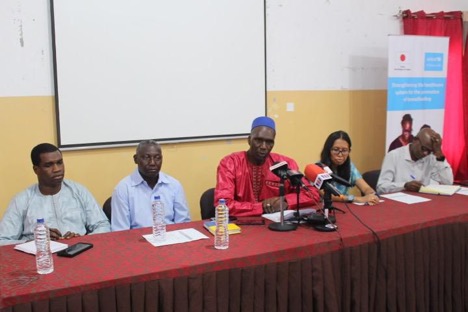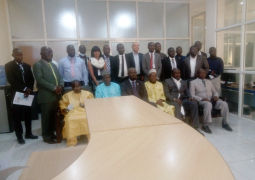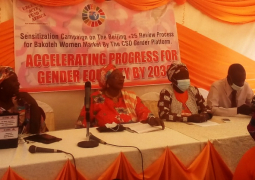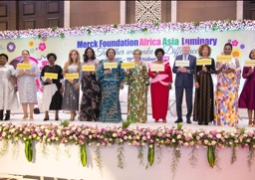
World Breastfeeding Week (WBW) is celebrated globally from August 1 to 7 in more than 102 countries to highlight the importance of breastfeeding. The theme of this year’s event- “Closing the Gap: Breastfeeding support for all’, focuses on inclusive support and access to breastfeeding resources for every mother and child, with emphasis on survival, health and wellbeing.
Also, the objectives of this year’s commemoration are to inform communities about the inequalities that exist in breastfeeding support and prevalence, to anchor breastfeeding as an equaliser to close gaps within society and to engage and galvanise actions in reducing inequalities in breastfeeding support by focusing on vulnerable groups.
Giving a background details of the initiative, Malang N. Fofana, acting executive Director of National Nutrition Agency, recalled that World Breastfeeding Week, is an initiative of the WHO and UNICEF that seeks to support exclusive breastfeeding in the first-six months of a child’s life and to reduce food insecurity and the many health benefits associated with it.
“As enshrined in the ‘Convention on the Rights of the Child’, every infant and child has right to good nutrition. The World Health Organization has reported that under nutrition is associated with 45% of child deaths globally.” ED Fofana said
The rate of exclusive breastfeeding for the first six months, he emphasised, has steadily increased over the years from 48% in 2013 to 54% in 2019 to 2020.
However, he maintained that more support is still needed to promote, protect and support optimal and young child nutrition, in order to meet the 60% targets, set out in the national nutrition policy 2021- 2025 and the global nutrition target of 70% by 2030 as set by the World Health Assembly.
“It is gratifying to note that The Gambia has already exceeded the global Nutrition target of increasing exclusive breastfeeding to 50% by 2025.”
For his part, Sanjally Tarawally, Deputy Director of Health Promotion and Education at the Ministry of Health, said breastfeeding can act as an equaliser in society and that efforts must be made to ensure everyone has access to breastfeeding support and opportunities.
He reminded that it is essential that no-one is left behind especially vulnerable mothers who may need additional support to reduce breastfeeding inequalities.
Dr Yulia Widiati, Child Survival and Development Manager at UNICEF, said breastmilk contains essential antibodies that protect children against diseases; breastmilk is a safe, nutritious, and sustainable source of good nutrition for children.
She also revealed that, The Gambia is among the few countries that have achieved significant progress in exclusive breastfeeding, with 54% of children exclusively breastfed in 2019.
The country, she added, is on course to achieving the 2025 global nutrition target of increasing the rate of exclusive breastfeeding in the first six months up to at least 50%.
While this is a significant improvement, she said many women across the country face barriers, such as harmful marketing practices, lack of access to quality healthcare, and weak family friendly policies, when making infant feeding decisions.
Yulia also pointed out that to build on World Health Assembly target of 50 per cent by 2025 and ultimately the global target of 70 per cent by 2030, these barriers must be addressed with UNICEF supporting the Government of The Gambia to remove those barriers.





